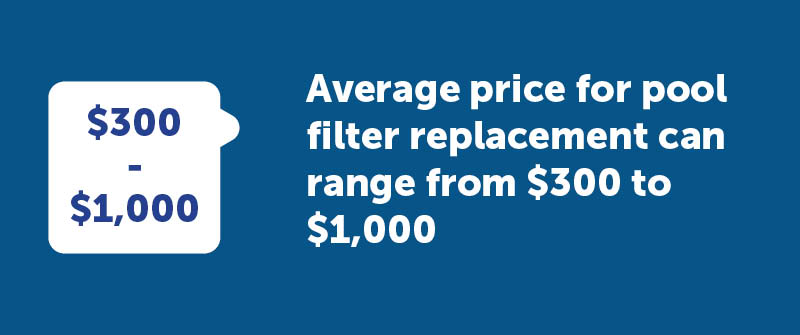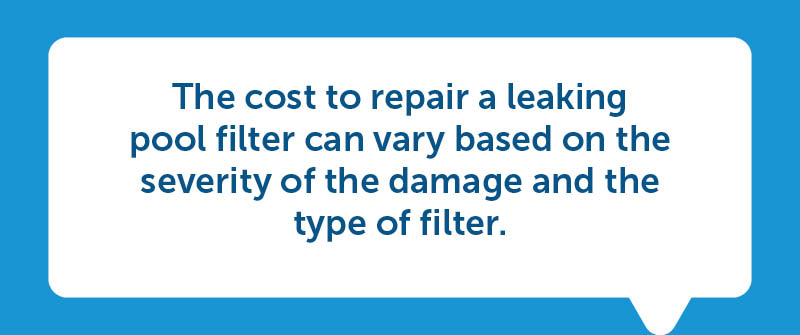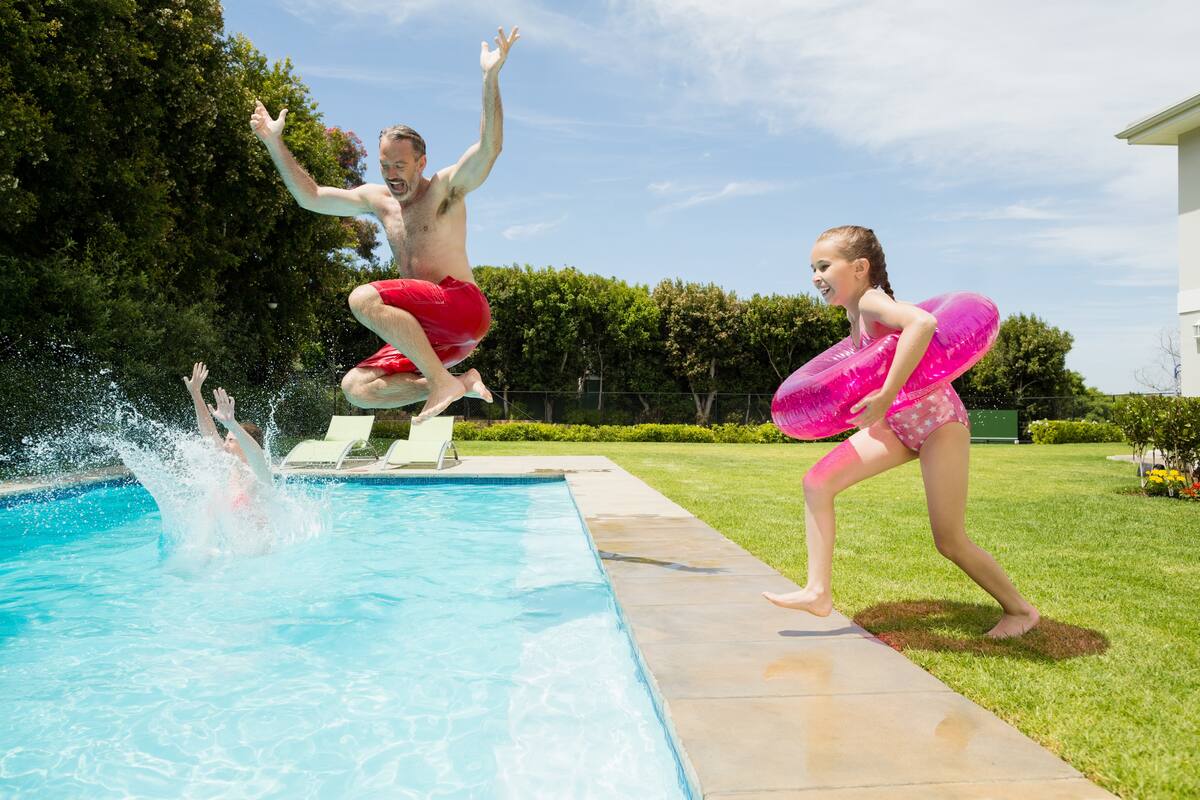Understanding Pool Filter Lifespan
Keeping your swimming pool in pristine condition involves understanding the pool filter’s lifespan. A pool filter is central to maintaining a clean and clear swimming environment by removing debris and particulates from the water. However, just like any other component, pool filters have a limited lifespan and need regular maintenance and eventual replacement to function optimally.
Factors Affecting The Lifespan Of A Pool Filter
Several factors influence how long your swimming pool filter will last. Regular usage, the size of the pool relative to the filter, and the type of filter you are using all play significant roles. A pool filter is central to maintaining a clean and clear swimming environment by removing debris and particulates from the pool water, and it is a crucial component of the overall filtration system. High usage results in increased wear and tear, potentially diminishing a pool filter’s lifespan. Additionally, exposure to harsh weather conditions and pool chemicals can accelerate degradation.
Signs That Indicate It’s Time To Replace The Pool Filter
It’s essential to monitor your filter for signs that it may need replacement. Common indicators include decreased water clarity, visible damage to the filter material, and reduced water flow rates despite routine cleaning and maintenance. If you notice any of these issues, it might be time to replace the pool filter.
General Recommendations For Pool Filter Replacement Timeline
Generally, the type of filter dictates the average replacement timeframe. Cartridge filters typically require replacement every 2-3 years, sand filters need a complete change every 5-7 years, and DE pool filter replacement tends to occur every 3-5 years, depending on maintenance and usage.
How Much Does It Cost To Replace A Pool Filter?
When contemplating a pool filter replacement, the first question that often arises is, “What is the average pool filter cost?” The pool filter installation process can also influence the overall cost, depending on the complexity and type of filter being installed. Average pool filter prices can vary significantly depending on several factors including location, type of filter, and additional installation costs.
Average Replacement Costs Depending On Location
Geographical location plays a pivotal role in determining the average price for pool filter replacement near me. For instance, in areas like Florida where pools are more common, you might find competitive pricing due to high demand and availability of services. In Florida, the average price for pool filter replacement can range from $300 to $1,000 depending on the type and complexity of the installation. It’s wise for homeowners to shop around and get multiple quotes from local providers to ensure the best price.

Price Variations Between Different Pool Filter Types
Another factor affecting cost is the type of pool filter. Cartridge, diatomaceous earth (DE), and sand filters each come with their price points. Another option to consider is the glass pool filter, which, although more expensive initially, offers superior filtration capabilities and longevity. Cartridge filters, known for their ease of maintenance, can range between $200 and $1,000, while the more efficient DE filters might cost a bit more, from $500 to $1,500 due to their superior cleaning capability. Sand filters are generally the most economical, with costs lying between $250 and $800.
Additional Costs For Pool Maintenance
Beyond the direct pool filter installation cost, it’s essential to consider additional expenses such as installation fees and taxes. Professional installation can typically add an additional $100 to $500 to your budget, depending on the complexity of your pool system. Moreover, some states levy sales taxes on such purchases, which can also affect your final expenditure. To get the most out of your investment, consider these aspects and factor them into your pool maintenance budget.
Repairing A Leaking Pool Filter
A leaking pool filter can hinder your pool’s performance and lead to costly water loss if not addressed promptly. Understanding the common causes of leaks can help you make informed decisions about repairs.
Common Causes Of Pool Filter Leaks
There are several reasons why a filter might begin to leak. Often, wear and tear on the filter housing or connectors can create small gaps. Additionally, O-ring failures, cracks in the filter tank, and inadequate sealing after maintenance can cause leaks. Regular inspections can prevent severe issues by identifying these minor problems before they escalate.
Cost Estimates For Pool Filter Repairs
The cost to repair a leaking pool filter can vary based on the severity of the damage and the type of filter. Minor repairs, such as replacing an O-ring, may cost around $20 to $50, while repairing a crack in the filter housing might range from $100 to $300. However, extensive damage might necessitate a full replacement, which can be more costly.

DIY Repair Tips And Professional Service Options
For those with a knack for DIY projects, minor leaks can often be fixed with basic tools and new parts. Ensure that you have the right size O-rings and follow instructions carefully. However, for larger leaks or complex issues, professional services are recommended. Hiring a professional can ensure the leak is fixed accurately and prevent future problems, giving you peace of mind.
Considerations For Pool Filter Installation
Installing a new pool filter system is a crucial step in maintaining a clean and enjoyable swimming pool. Proper installation and maintenance of pool equipment are essential for enhancing performance and longevity, while properly sized filter cartridges help optimize water circulation and prevent contaminants from re-entering the pool or spa. Several factors influence the time it takes to complete this process, and understanding them can help you plan better for your pool filter installation project.
Factors Impacting Filter System Installation Time
The first consideration is the type of inground swimming pool pump and filter system you choose. Different systems require varying levels of effort and expertise to install. For example, a cartridge filter may take less time compared to a DE or sand filter due to fewer parts and a simpler setup.
Location is another factor. If the in ground pool filter system needs to be installed in a hard-to-access area, it may require more time and specialized tools. The readiness of the site, availability of necessary resources such as electricity and plumbing connections, and the condition of any existing equipment can also play significant roles in determining the installation duration.
Step-by-Step Process Of Installing A Pool Filter System
The installation typically begins with the selection of an appropriate site, followed by the assembly of the filter components. This involves connecting the pump and plumbing lines, and then ensuring that all parts fit securely without leaks. Next, testing the system ensures that it is functioning correctly before the pool is refilled. This step-by-step process can take anywhere from a few hours to a couple of days, depending on the complexity of the system and site.
Recommendations For Hiring Professional Pool Installation Services
While installing a pool filter can be a DIY project for those with technical skills, hiring a professional can ensure the longevity and optimal performance of the system. Professionals have the experience and tools necessary to handle unforeseen challenges quickly, saving you time and potential future expenses. Make sure to verify their credentials and ask for references before hiring.
Experience the convenience of professional installation by exploring DiscountFilters.com, where we offer a seamless process from selection to installation. Our wide range of easy-to-install compatible filters ensures that your pool remains in pristine condition. Choose quality and affordability with DiscountFilters for all your pool filter needs.

